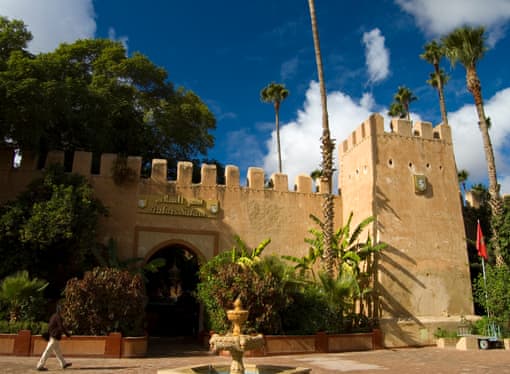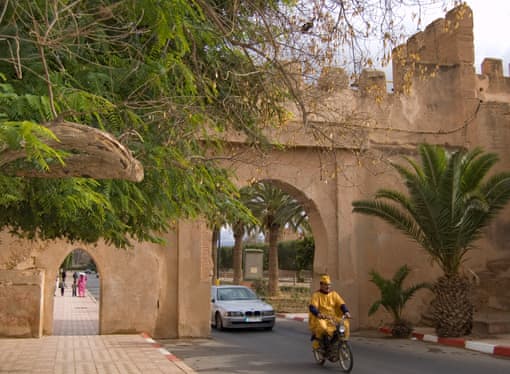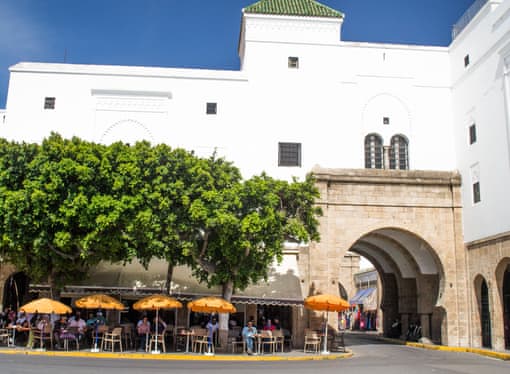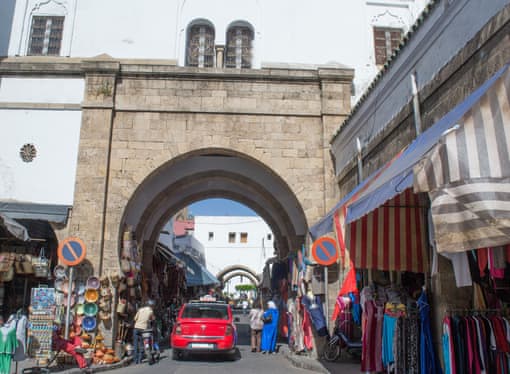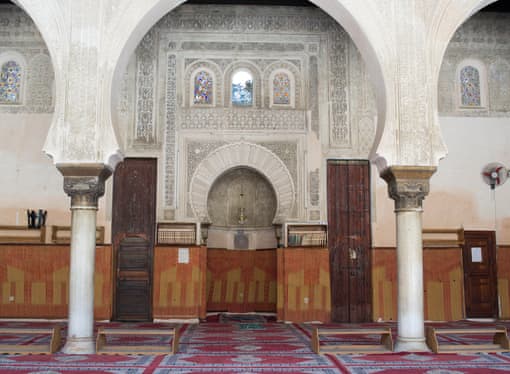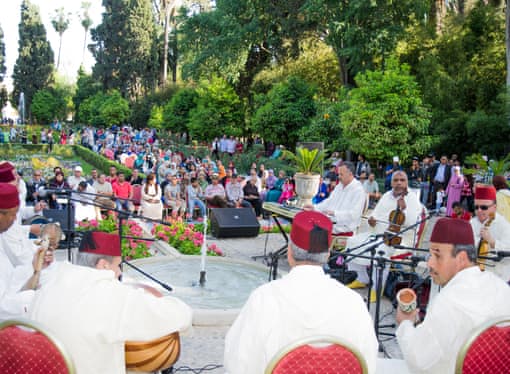









Morocco Halal-friendly holidays general information
Halalbooking guide for halal-friendly holidays in Morocco
Morocco is the up-and-coming destination for halal tourism. It offers a wide choice of halal-friendly accommodation in beach resorts, historic cities and mountain villages, great halal food and lots to see and do. Marrakesh, in particular, is proving to be an extremely popular city break destination for Muslim tourists.
Top 5 reasons to visit Morocco
1. Delicious halal food
As a Muslim country, all of the food served in restaurants in Morocco is halal, with the exception of a few tourist establishments in resorts. It is also easy to find ‘dry’ hotels and restaurants which don’t serve alcohol.
Make sure you try the following traditional halal dishes during your stay in Morocco:
- Couscous - This fine wheat pasta, with the consistency of rice, is found throughout Morocco, served with fish meat and delicious tagines.
- Tagines - These traditional Moroccan stews take their name from the clay pots in which they are cooked. They are made with chicken, lamb or fish and flavoured with herbs and spices, enhanced with such delicacies as green olives, preserved lemons, apricots and raisins.
- Pastilla or B’stilla - Traditional chicken or pigeon pies covered with layers of delicate flaky pastry, flavoured with cinnamon and dusted with icing sugar.
- Harira - This delicious soup is traditionally served at the start of the iftar meal during Ramadan and is made with tomatoes, chickpeas, lentils and lamb.
- Mint Tea - Fragrant fresh mint tea is the most common beverage in Morocco, served with meals and at every time in-between. It is extremely refreshing!
2. Morocco’s Fascinating Culture and History
Islam was first brought to Morocco by Arab traders in the 7th and 8th centuries. In 788 Idris ibn Abdallah, or Moulay Idris I, as he is known in Morocco, who was the great-grandson of the Prophet Muhammed, decided to settle in Morocco. He founded the Moroccan Umayyad state, but his work was cut short when he was assassinated. It was left to his son, Idris II, born after the death of his father to unify Morocco and firmly establish its allegiance to Islam.
Top 3 mosques to visit in Morocco:
Koutoubia (Kutubiyya) Mosque, Marrakesh
Completed in 1199, this mosque is one of Morocco’s great historic buildings. It takes its name from the booksellers which originally surrounded it. Its minaret is one of the most impressive in the Islamic world, built to an unusual square design from enormous blocks of local red sandstone, reaching a height of 77 metres.Hassan II Mosque, Casablanca
Built in 1993 to commemorate the 60th birthday of King Hassan II, this spectacular mosque showcases the best of modern architecture and Moroccan craftsmanship. Its interior displays colourful ceramic tiles, known as zellij, hand-carved stone and wood and elaborate marble floors. Its minaret is an astonishing 210 metres tall and the mosque is in a breathtakingly beautiful location, jutting out over the waves of the Atlantic sea. It is one of the largest mosques in the world – there is space for 25,000 people to worship here.Kairouine Mosque (Al Quaraouiyine), Fes
Founded in 859 by Fatima El Fihria, a female Tunisian refuge, this mosque is one of the largest in Africa, where over 20,000 people can worship at one time. Its green pyramid-shaped roof and minaret are at the heart of the University, which is one of the oldest in the world. It was built in a plain and simple style which has been embellished over the ages, with Andalusian touches, elegant arches and grand pavilions.
3. Breath-taking Scenery
Morocco boasts a diverse landscape, from snow-capped mountains to the sands of the western Sahara desert. It benefits from a Mediterranean and an Atlantic coastline, with some of its finest sandy beaches in the resort of Agadir on the Atlantic coast. It has two dramatic mountain ranges: the Atlas mountains in the centre of the country, providing a stunning backdrop to the Imperial city of Marrakesh, and the Rif mountains which run along Morocco’s northern edge.
4. Enchanting Medinas
The names of Morocco’s magnificent cities even sound enticing as they roll off the tongue – Casablanca, Rabat, Fes, Marrakesh, Tangier. They each have their own fascinating history, and at the centre of each is the historic medina or ‘old town’. This is usually the cultural heart of the city, surrounded by city walls, inside which can be found a maze of narrow streets, where its most interesting and most ancient buildings and monuments can be found. You will usually find historic mosques, a street market or souk, and lots of the traditional riads - mansions built around a central courtyard - many of which have now been turned into intimate, family-run hotels. Food served in Moroccan cities will always be halal, and if you are looking for an alcohol-free restaurant then the medina is a good place to start, as this is often the most conservative and traditional part of the city.
5. Great climate all year round
Morocco is a fantastic choice for a halal-friendly holiday, all year round. Summers are hot and dry – perfect for beach-lovers – with the hot, sunny weather lasting right through September and October. The climate in winter remains mild, making it a popular choice throughout the year. Spring is a beautiful time to visit when the mountains are green, and flowers in bloom.
What kind of accommodation is available for Muslim families in Morocco?
Morocco offers a wide variety of accommodation choices for Muslim families. Choose from resort style halal-friendly hotels, exclusive villas or riad style hotels.
There are many alcohol-free or ‘dry’ hotels available, which only serve halal food. There are also a number of hotels such as Villa Koutoubia and the Grand Mogador Tanger Sea View & Spa which offer dedicated swimming pools for women.
Halalbooking offers a good choice of stylish villas and riads which are available to rent exclusively by your family group. Fully-secluded pools in Halalbooking’s villas all offer complete privacy. Self-catering offers more freedom for Muslim families. It is easy to shop for halal food in Morocco and two of the supermarket chains, Marjane and Acima do not sell alcohol.
Riads in Morocco
A riad, which literally means ‘garden’, is a traditional Moroccan house built around a central courtyard, which often has its own small swimming pool. Many riads have been converted to small, authentic hotels.
Staying in a riad is a great choice for a halal-friendly holiday. Riads are small and family-run. Typically they have around five rooms. All of the food served is halal and the vast majority do not serve alcohol. Some riads are available for private hire by your family group, which allows your family to use the swimming pool in complete privacy. Halalbooking offers the opportunity to stay in a riad hotel in the medina of Marrakesh, in Fes, Errachidia and Essaouira.
Top places to stay in Morocco for a halal-friendly holiday
Marrakesh
The enchanting city of Marrakesh needs no introduction. Stay in the heart of the ancient medina for an atmospheric halal city break experience.Tangier
Set on the Straits of Gibraltar, the port city of Tangier is characterised by its whitewashed hillside medina.Agadir
Those seeking golden sand and a laid-back resort atmosphere should head to Agadir.Fes
Fes is another of Morocco’s imperial cities and also a great choice for a city break.Essaouira
Further south, overlooking the Atlantic coast, Essaouira is a charming fortified town, set on beautiful sandy beaches. Essaouira is home to artists and craftsmen and famous for its marquetry, or inlaid woodwork.Errachidia
Errachidia, which is the ideal base from which to explore the dramatic Ziz Valley.Chefchaouen
For mountain scenery head to the distinctive mountain village of Chefchaouen, with its unusual blue-washed buildings high in the Rif Mountains.
Shopping in Morocco
The local currency is the Dirham – it’s a closed currency so you can’t usually obtain it outside Morocco. Take cash in major currencies to exchange or withdraw it from a cashpoint machine with your credit or debit card.
The renowned Moroccan souks offer an authentic shopping experience, which is as much about the experience as what you choose to buy. A few tips for shopping in souks:
- Barter – haggling is an accepted part of shopping in the traditional markets, so you need to negotiate for the best price.
- Having cash ready to pay – either the local currency, Dirham, or a major international currency which will be accepted in some places.
- Don’t be surprised if you’re offered a glass of mint tea to seal the deal!
Unique gifts which you can bring back to remind you of Morocco:
Leather goods – Morocco, and especially the city of Fes, is famous for its traditional tanneries. Buy a pair of the brightly-coloured authentic slippers known as ‘babouche’ or ‘belgha’ – great for wearing around the house when you get home.
Woodwork – Essaouira is famous for its beautiful marquetry, or inlaid woodwork, made from the local Thuya tree, a mahogany-like hardwood. You can buy beautiful furniture bowls and ornaments.
Lanterns – the intricate lanterns with brightly-coloured glass are available in the souks of Marrakesh or Fes and look beautiful inside or out. Great for reminding you of your holiday when you’re back home!
Hand-painted ceramics – lovely pottery is painted in bright colours with traditional patterns, and is perfect for gifts or to spice up your home.
Djellabas – the traditional Moroccan dress worn by both men and women is a great cover-up. Women have a fantastic choice of colours, materials and patterns.
By registering I accept Halalbooking’s Terms of Use and Privacy & Cookie Policies.







